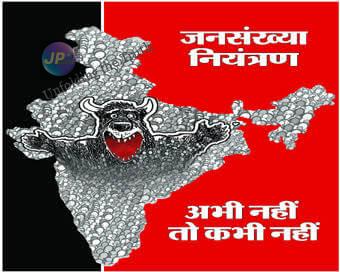The rapid evolution of technology has reshaped the way we communicate, work, and live. However, it has also led to a growing concern about digital safety and security. In India, the rise of digital arrests — legal actions taken against individuals for online offenses — is becoming an important issue. With the increasing use of social media, digital platforms, and online interactions, it’s crucial for individuals to understand the concept of a digital arrest and take necessary precautions to safeguard their online presence.
What is Digital Arrest?
A digital arrest refers to an individual’s detention or legal action taken against them due to their activities on the internet or through digital media. This can include a range of offenses such as defamation, cyberbullying, hate speech, spreading misinformation, hacking, and even violating privacy laws.
In India, the Information Technology (IT) Act, 2000, along with other laws like the Indian Penal Code (IPC), govern online activities. These laws are used to address crimes that occur in the digital space, and in some cases, law enforcement agencies arrest individuals for their online actions.
Common Types of Digital Offenses Leading to Arrests
- Cyberbullying and Harassment: Online bullying, threats, or harassment can lead to serious consequences. If someone is found guilty of online abuse, they can face penalties, including arrest.
- Defamation: Posting defamatory content or making false claims online can be punishable under Indian law. Social media platforms are often used to spread defamatory material, leading to potential legal actions.
- Hate Speech and Offensive Content: Inciting violence, discrimination, or hatred through online posts can result in a digital arrest. With platforms like Twitter, Facebook, and Instagram becoming powerful tools for expression, the spread of hate speech is closely monitored by authorities.
- Misinformation and Fake News: The spreading of false or misleading information can be considered a criminal act. This has become particularly relevant in the era of WhatsApp and viral social media posts. Individuals spreading fake news can be arrested under various sections of the IPC.
- Cyber Crimes and Hacking: Engaging in hacking activities or accessing someone’s private information without consent is a serious offense. Cyber criminals can face both digital arrests and long prison sentences for such actions.
- Privacy Violations: Infringing on the privacy of others, such as leaking private or sensitive information, is another offense leading to digital arrests. The landmark Personal Data Protection Bill (still under discussion) aims to safeguard individuals’ data and holds offenders accountable.
Legal Framework for Digital Arrests in India
The Indian government has enacted several laws and regulations to deal with digital offenses. Some of the key legal provisions include:
- Information Technology (IT) Act, 2000: This is the primary law for regulating cyber activities in India. It defines and penalizes cybercrimes such as hacking, identity theft, cyberbullying, and the distribution of obscene content.
- Indian Penal Code (IPC): Sections 499 (Defamation), 505 (Statements leading to public mischief), and 66A (which was struck down by the Supreme Court in 2015, but some similar provisions remain) are commonly invoked for online offenses.
- The Protection of Children from Sexual Offences (POCSO) Act: This law deals with online sexual exploitation and abuse of children. Any content or activity that exploits children digitally can result in arrest and prosecution.
- The Personal Data Protection Bill (still under discussion): This bill, once enacted, will ensure stronger privacy protections and hold entities accountable for data breaches and violations.
Precautions to Avoid Digital Arrest
With the growing instances of digital arrests, it’s important to take proactive steps to protect oneself from potential legal trouble. Here are some useful precautions to follow:
- Think Before You Post: Always verify the information before sharing it online. Spreading false or misleading content can result in serious consequences. Similarly, be mindful of your language and the way you communicate online. Avoid using hate speech or engaging in online arguments that can escalate into legal issues.
- Use Secure Passwords and Two-Factor Authentication: Protect your online accounts from hacking attempts by using strong, unique passwords. Enable two-factor authentication (2FA) for extra security, especially on social media platforms, email, and financial accounts.
- Respect Privacy: Never share or publish private content about others without consent. This includes personal messages, photos, videos, or any sensitive information. Privacy violations are taken very seriously under Indian law, and the consequences can be severe.
- Avoid Engaging in Cyberbullying: Online harassment, whether directed at an individual or group, is illegal. Treat others with respect, and if you witness online bullying, report it immediately.
- Know the Limits of Free Speech: While freedom of speech is a fundamental right in India, it has reasonable restrictions. The Supreme Court has clarified that speech that incites violence, spreads hatred, or causes harm to others is not protected. Be cautious when expressing opinions online, especially on politically sensitive or controversial topics.
- Educate Yourself on Cyber Laws: It’s essential to stay informed about the legal implications of your digital actions. Familiarize yourself with cyber laws, privacy regulations, and the dos and don’ts of internet usage. Being aware of the rules can help prevent accidental violations.
- Report Online Offenses: If you encounter any illegal activities online — such as hacking, threats, or harassment — report them to the authorities or the relevant platform. Many social media networks, including Facebook, Twitter, and Instagram, have built-in reporting systems to flag harmful content.
- Use VPNs and Stay Anonymous (Where Appropriate): A Virtual Private Network (VPN) can help protect your privacy and identity when browsing the internet. However, make sure you’re not violating any laws while using these tools.
- Understand Data Protection: Be cautious when sharing personal information online. Avoid entering sensitive data on unsecured websites and be careful about granting permission to apps or websites requesting access to your personal data.
Inference
Digital arrests in India highlight the growing importance of online safety, both from a legal and personal security perspective. With the rapid increase in digital communication, it’s essential to stay informed about the legal implications of online actions and take precautions to protect yourself. By respecting others, following the law, and maintaining secure digital practices, you can enjoy the benefits of the internet without risking legal consequences. Always remember, the virtual world is still governed by real-world laws, and ignorance of these laws is never a valid defense.
Being responsible and aware in the digital space can go a long way in ensuring a safe and secure online experience, keeping you out of potential legal trouble while enjoying the vast opportunities the digital world offers.
Also Read – Digital Rape – do-not-mistake-digital-rape-for-online-sexual-harassment-know-in-detail














Leave a Reply